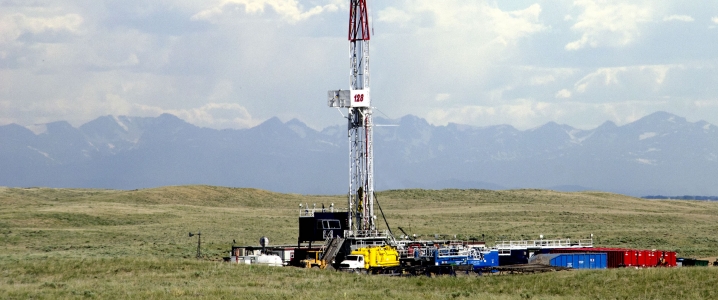Colorado voters will decide the future of the oil and gas industry in their state on Tuesday, as they contemplate requiring greater distances between them and drilling operations.
There are more than 150 voter initiatives on the ballot in 37 states on November 6, ranging from healthcare to marijuana legalization, from voting rules to criminal justice reform. There are also a series of votes that will affect the oil and gas industry. Voters in Washington State will decide on passing the nation’s first carbon tax, while California will weigh a repeal of a gasoline tax.
But the vote in Colorado might be the most consequential for the energy industry. If passed, proposition 112 will bar drilling operations within 2,500 feet of homes, businesses and green spaces, up from the current setback distance of just 500 feet.
A 2017 explosion at a residence, while not related to drilling, helped galvanize a movement pushing for more safety. The drilling frenzy in Colorado, which began several years ago, has caused a lot of friction in the populated areas north and south of Denver.
The increased setback distances would protect local communities from the dangers of drilling, as well as from the pollution associated with operations, supporters argue. However, the industry says that the measure could nearly kill drilling in the entire state. Because of dense populations around oil and gas operations, increasing the setback distance to 2,500 feet would put roughly 85 percent of the state off limits to drilling.
Colorado has become a sought after destination for shale companies, and oil and gas production has surged over the past half-decade. Production in the DJ Basin could hit 550,000 bpd by the end of the year, according to Rystad Energy. Proposition 112 puts much of that at risk.
“If passed, Proposition 112 would eliminate – to varying degrees and depending on proximity to residential areas – many future drilling locations for operators in the DJ basin, ranging from 67-71% for HighPoint Resources and Noble Energy, to 94-97% for Anadarko and PDC Energy,” Rystad Energy said in a recent report. “Impact on DJ basin oil production won’t be visible before 2021, but output would likely enter into a multi-year phase of decline after 2020 if Proposition 112 is passed, as opposed to expectations of continuous growth through the mid-2020s if it is rejected by voters.” Production could hit 800,000 bpd by the end of 2021 if the proposition fails. Related: Why Trump Decided To Back Down On Iran
The energy consultancy said that there is evidence that drillers in the DJ Basin are accelerating their drilling and completion plans ahead of the vote.
It comes as no surprise, then, that oil and gas companies are heavily financing political ads to defeat the measure, pouring some $36 million into the state, compared to just $800,000 by environmental groups, according to the WSJ.
There is another vote on the Colorado ballot that would be just as consequential, although it is a bit more confusing. Amendment 74 would require the government to provide “just compensation” to landowners if any set of regulations negatively impacts their property value. The latest polls suggest that this measure has a good chance of passage.
Supporters of the amendment say that it will make the government more accountable since it will have to take responsibility for its regulatory actions. However, it would also have enormous ramifications for the oil and gas industry. It could be invoked in lawsuits against the state following the greater setback distances. If an oil company loses the ability to drill because the acreage falls within 2,500 feet of a residence, and the lost revenue from that property related to oil and gas revenue causes the property to lose value, then there is a legal case for compensation against the state.
Essentially, amendment 74 is the fallback plan for the industry if Proposition 112 passes, putting the state financially on the line for the increased setback distances.
“It’ll be implemented, and then boom, the lawsuits will start,” Denver-based attorney John Watson told the Wall Street Journal.
“It is such an outrageous measure,” Colorado House Majority leader, K.C. Becker told the WSJ. “It could bankrupt state and local government.”
By Nick Cunningham of Oilprice.com
More Top Reads From Oilprice.com:
- This High Profile Merger Could Impact EU Gas Markets
- What’s Behind The Continued Selloff In Oil?
- U.S. Oil To Significantly Outperform This Year


















